- Antipasti
- Bella Italia
- Dessert
- Drinks
- Favorite Italian recipes
- Main courses
- Pasta
- Pizza
- Side dishes and salad
- Tips & Knowledge
Tagliatelle recipe – make tagliatelle yourself
Want to make tagliatelle yourself? Great idea! It's easier than you might think. If you do it the traditional way, you don't even need a pasta machine. Read the article carefully, not just the actual tagliatelle recipe, but also the information surrounding it. We have tried to answer all your questions on the subject. If you still have a question, just ask it in the comments!
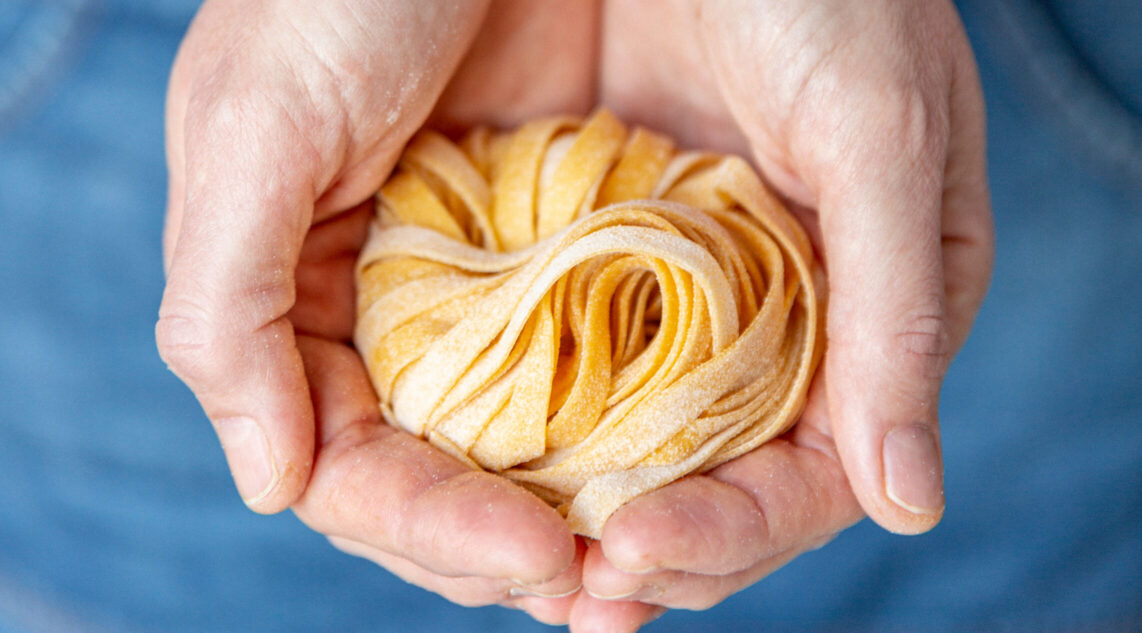
Table of contents
- Italienisches Tagliatelle Rezept
- The tagliatelle recipe is ideal for the pasta machine
- The tagliatelle recipe only works with the right ingredients
- How to dry the tagliatelle
- What exactly is tagliatelle?
- Cooking instructions for your fresh pasta
- These are classic sauces for homemade tagliatelle
- FAQ Tagliatelle recipe
- Tagliatelle step by step
Schritt für Schritt durch´s Rezept
- Step 1Pile up the flour and leave a well in the middle for the eggs. Place the eggs in the center and stir them into the flour with a fork. Make sure that your “flour dam” does not break and the eggs run out.
- Step 2Then knead the dough with your hands for about 15 minutes. This creates a nice, smooth and yellow dough.
- Step 3Leave the dough to rest in an airtight container for at least 30 minutes.
- Step 4Cut the dough in half with a knife. Shape one piece into a ball, flatten it and then roll it out as thinly as possible on a floured work surface using a floured rolling pin.
- Step 5Lightly flour the rolled-out dough. Now fold the top end inwards 5 cm from the edge of the dough. Then fold the bottom end inwards by another 5 cm. Then fold the top over again, then the bottom again, and so on. When your halves meet in the middle, fold the bottom half onto the top half.
- Step 6Then take a knife and cut strips 1 cm wide from your folded dough. This will create your long tagliatelle.
The tagliatelle recipe is ideal for the pasta machine
Cut an apple-sized piece from your pasta dough, place it in the pasta machine and turn the dough through it. The appropriate level on the pasta machine depends on its setting. The finished pasta should be about 1 mm thin.


If you don’t have a pasta machine or don’t want to work with a knife, here’s another tip: there are also specially turned rolling pins that cut several ribbon noodles at the same time.
The tagliatelle recipe only works with the right ingredients
To make traditional tagliatelle, you need typical flour: Italian type 00 flour. This type of flour is ideal because it provides the right consistency and elasticity for the pasta.
Eggs are another essential ingredient. They give the dough its structure and taste. If you prefer a vegan version, you can use pasta dough with semola rimacinata, i.e. Italian durum wheat semolina.
How to dry the tagliatelle
Once you have rolled out the dough and cut it into tagliatelle strips, lightly dust the pasta with flour. Lay the cut tagliatelle loosely on a clean kitchen towel or a baking tray dusted with flour. Make sure that the pasta is not on top of each other.
Alternatively, you can take a handful of the tagliatelle and carefully wrap it around your fingers to form a loose nest. Or place the pasta on the baking tray in a circular motion. Make sure that the nests are not too tightly packed so that the air can circulate well.


Another option is to hang the tagliatelle on a pasta drying rack. Alternatively, you can also use a clean coat hanger to hang the pasta. Make sure that the pasta is evenly distributed and has enough space to get air all around.
Always leave the pasta to dry in a well-ventilated place at room temperature. The drying time can vary, but the tagliatelle usually need around 24-48 hours. You will know they are ready when they are hard and brittle. Once the tagliatelle are completely dry, you can store them in airtight containers or plastic bags. This will keep them for several weeks.

What exactly is tagliatelle?
Tagliatelle is a type of long pasta that falls under the umbrella term tagliatelle. They are typical of the Emilia-Romagna and Marche regions. The name is derived from the verb tagliare = to cut. They are similar to fettuccine.
A golden replica of an ideal tagliatella is on display in the Bologna Chamber of Commerce, which specifies the exact dimensions as 1 mm high and 6 mm wide for raw tagliatelle. When cooked, they are slightly wider. Pappardelle are even wider.

Cooking instructions for your fresh pasta
Bring enough water (1 l per 100 g of pasta) to the boil and salt it generously. Your fresh tagliatelle only needs 2-3 minutes to cook. They should be al dente, i.e. still slightly firm to the bite.
These are classic sauces for homemade tagliatelle
The wide noodles are very suitable for rich and creamy sauces:
- The most classic sauce for tagliatelle is ragù(Bolognese). The rich combination of minced meat, tomatoes, onions, carrots, celery and red wine is perfect.
- Creamy carbonara with guanciale and egg yolk tastes delicious with tagliatelle.


- Pesto in all its variations tastes great with tagliatelle: pesto alla genovese, pesto rosso or salsa alle noci.
- Tagliatelle with sage butter and parmesan is a purist but very delicious serving suggestion.
- Tagliatelle with salmon is not quite Italian, but super tasty.
FAQ Tagliatelle recipe
Italian Tipo 00 flour is usually used for traditional tagliatelle. It has a fine consistency and is ideal for pasta dough. Alternatively, durum wheat semolina can be used to give the pasta a slightly rougher texture.
The usual rule of thumb is one egg per 100 g of flour. This means that four eggs are needed for 400 g of flour. However, depending on the size of the eggs and the moisture content of the flour, it may be necessary to adjust the quantity slightly.
Yes, it is important to let the dough rest for at least 30 minutes. This helps to relax the gluten, making the dough more elastic and easier to roll out.
Fresh tagliatelle can be kept in the fridge for one or two days. It is best to lightly flour them and store them in an airtight container. For longer storage, the pasta can be frozen.
To prevent the tagliatelle from sticking together, they should be lightly dusted with flour after cutting and loosely spread or hung up. When cooking, it helps to use enough water and stir the pasta occasionally.
Yes, the pasta dough can be prepared in advance and stored in an airtight container in the fridge. However, it should be used within 24 hours to ensure the best quality.
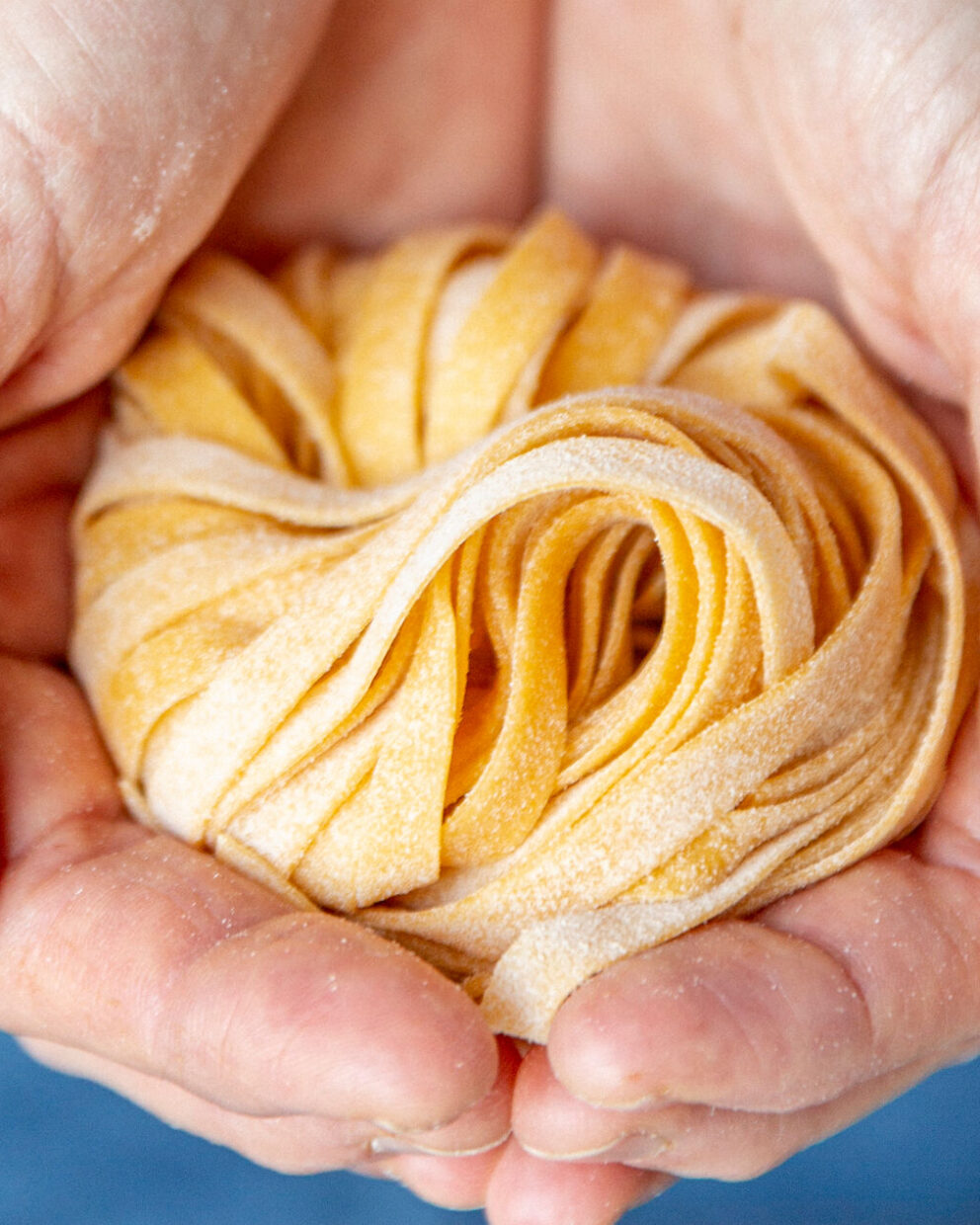
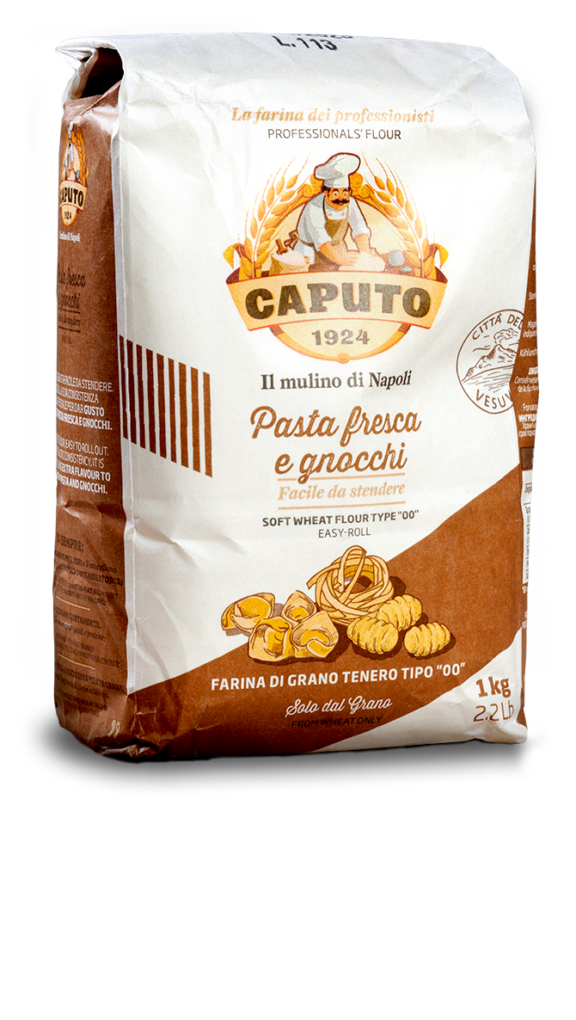






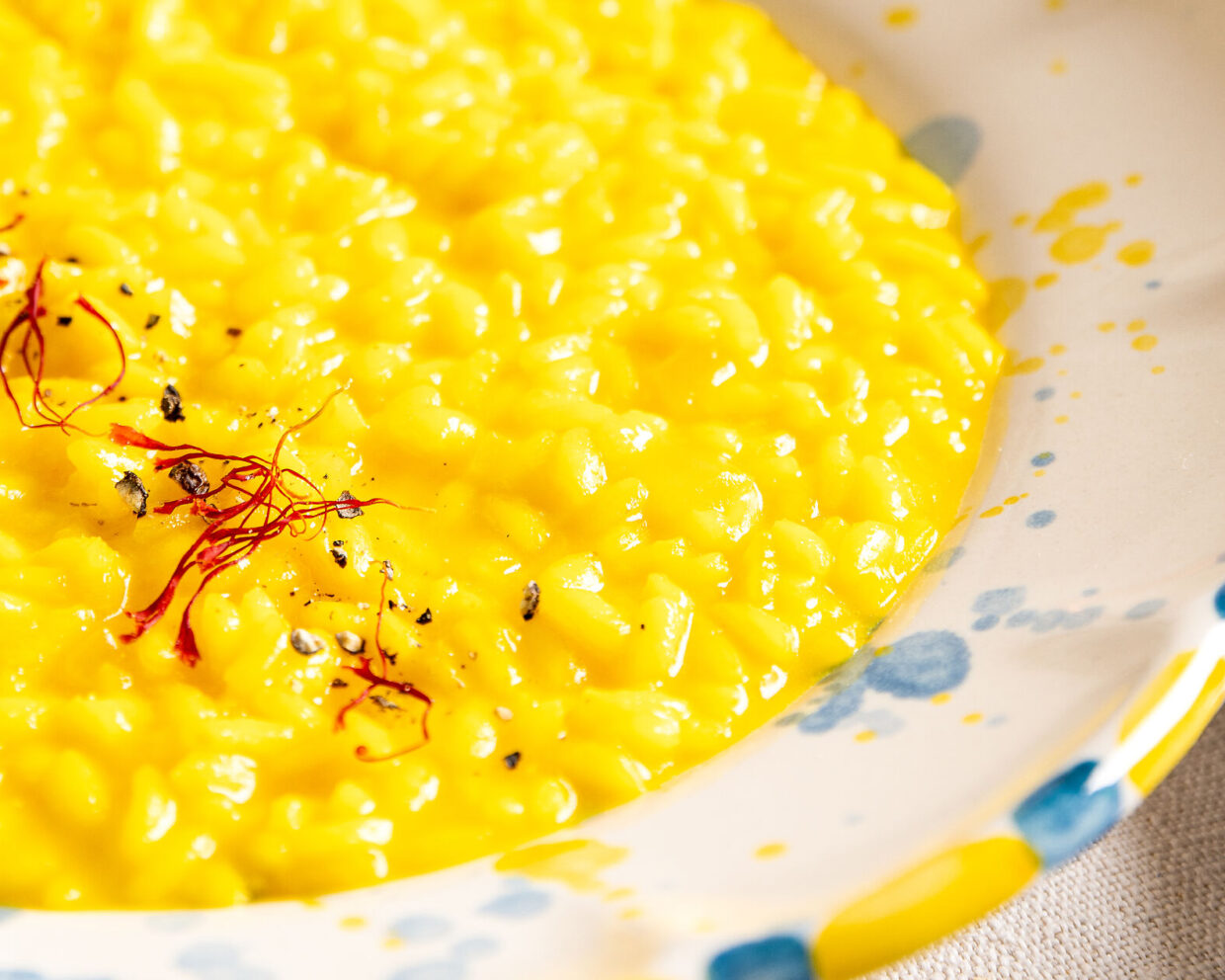
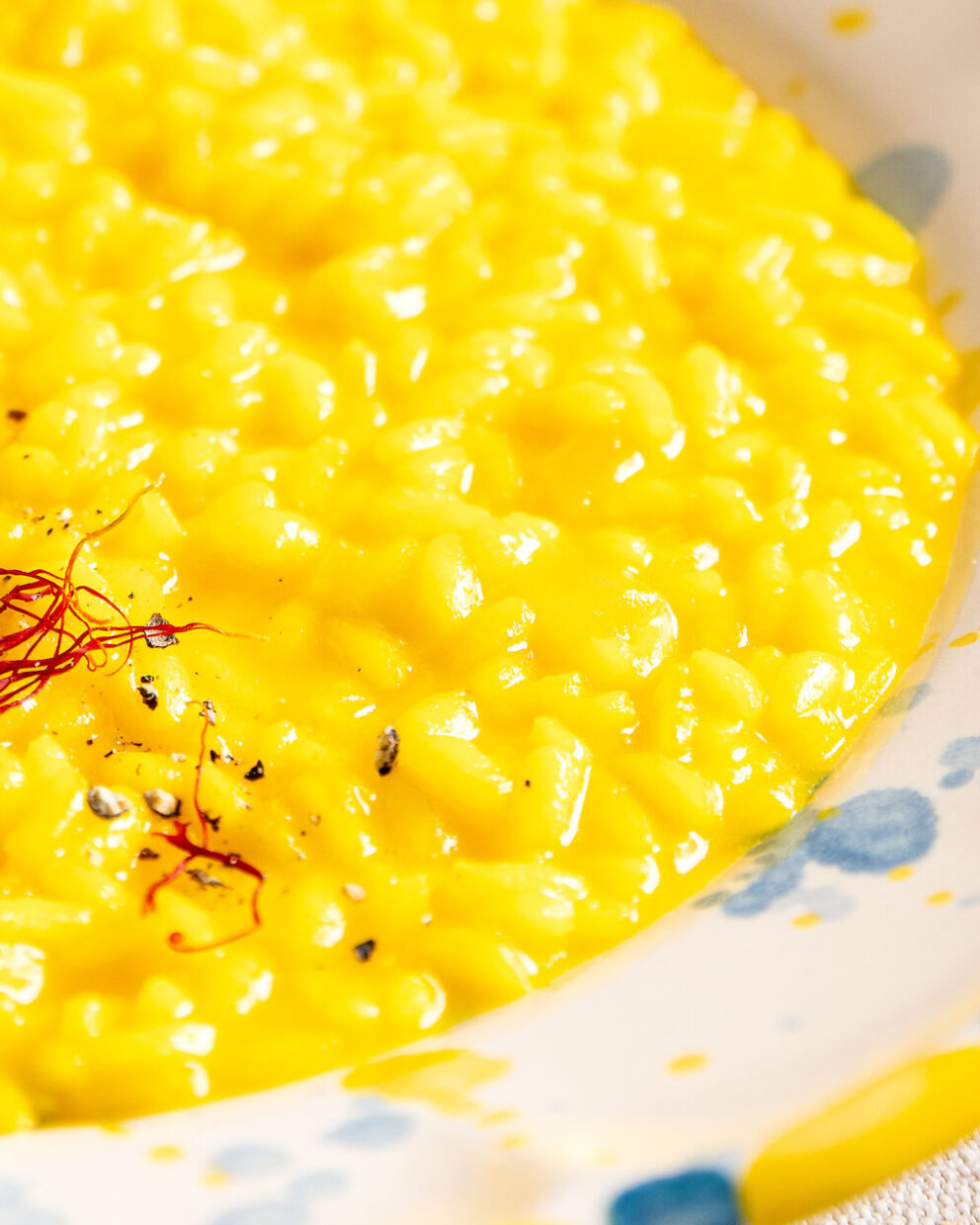
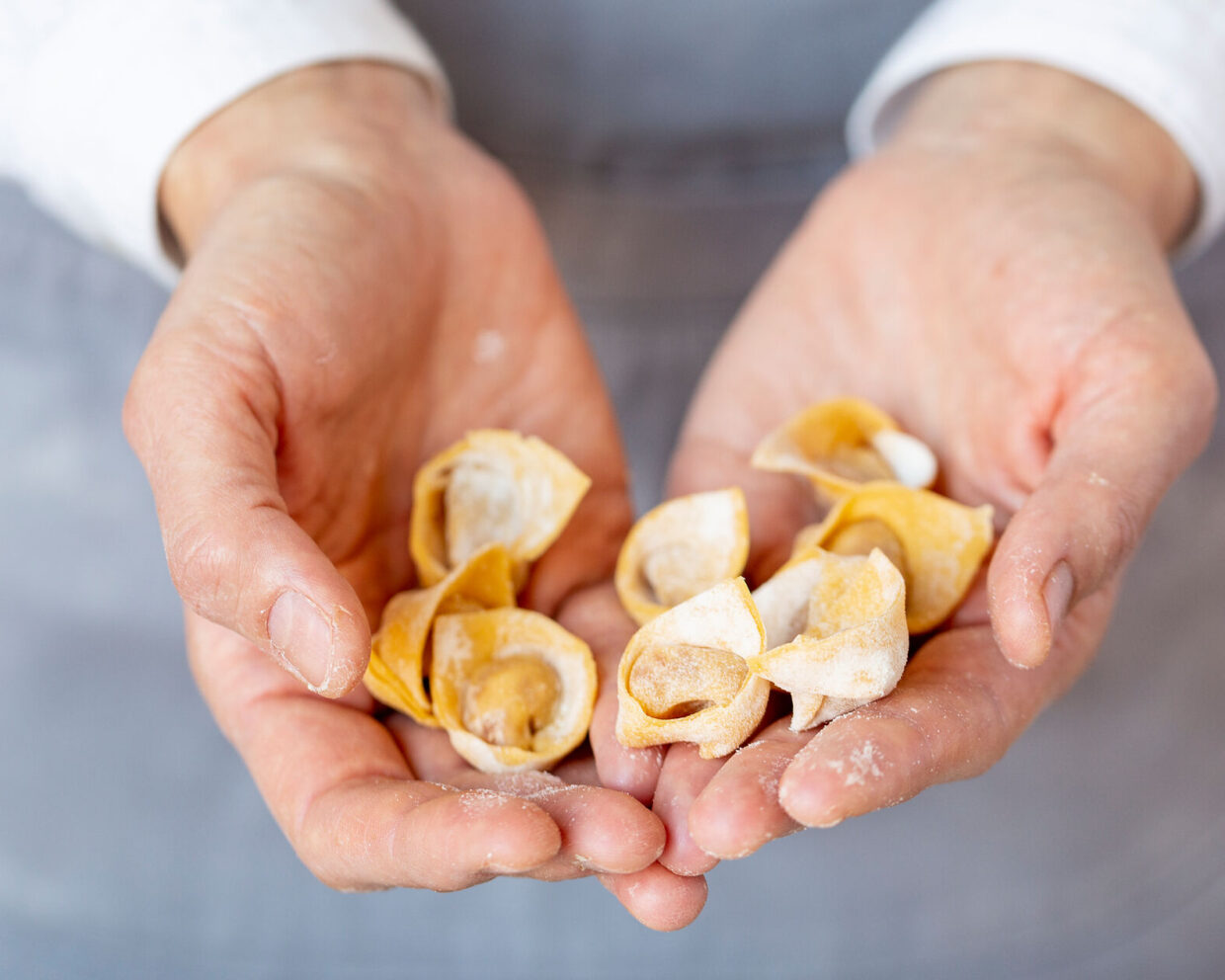
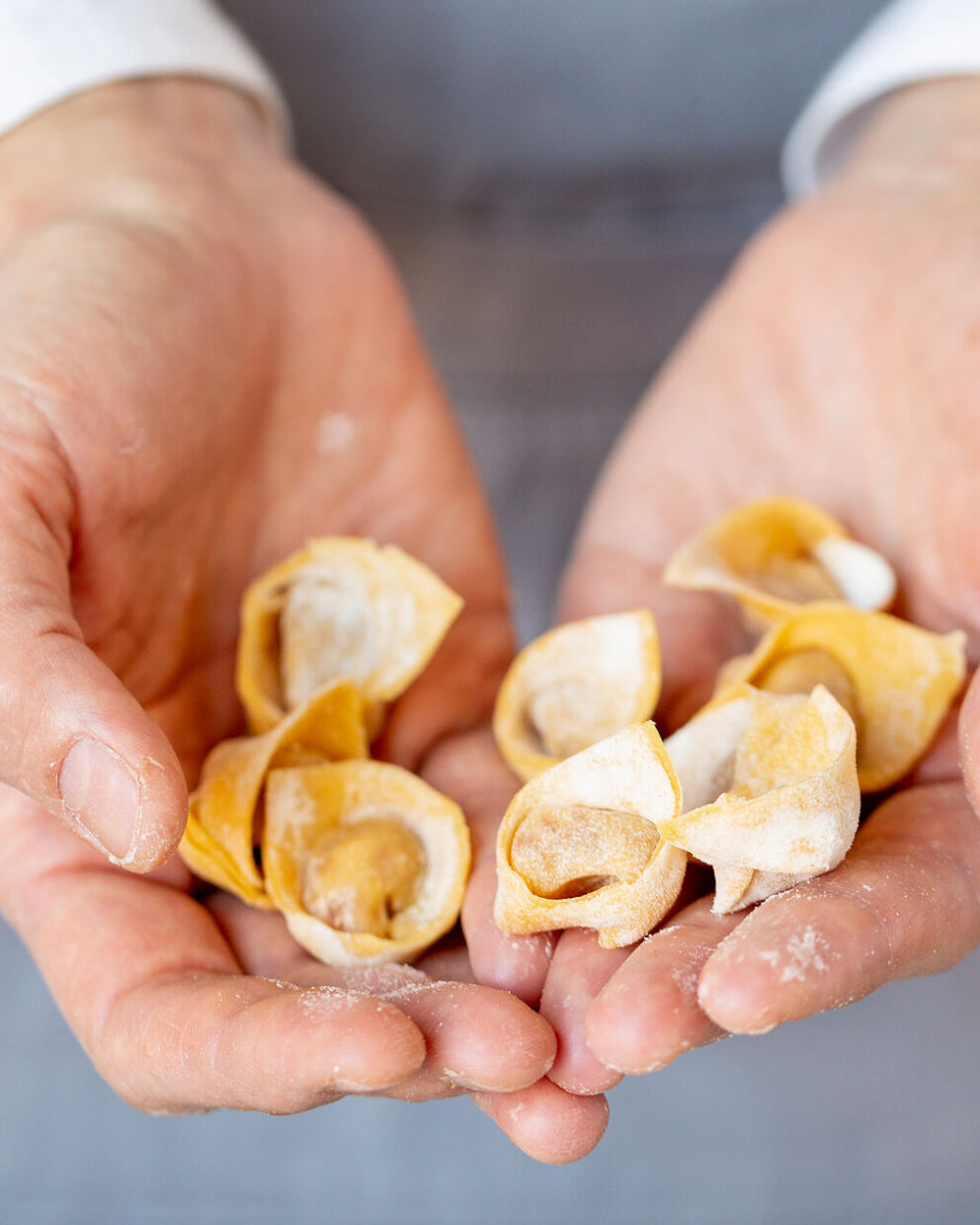
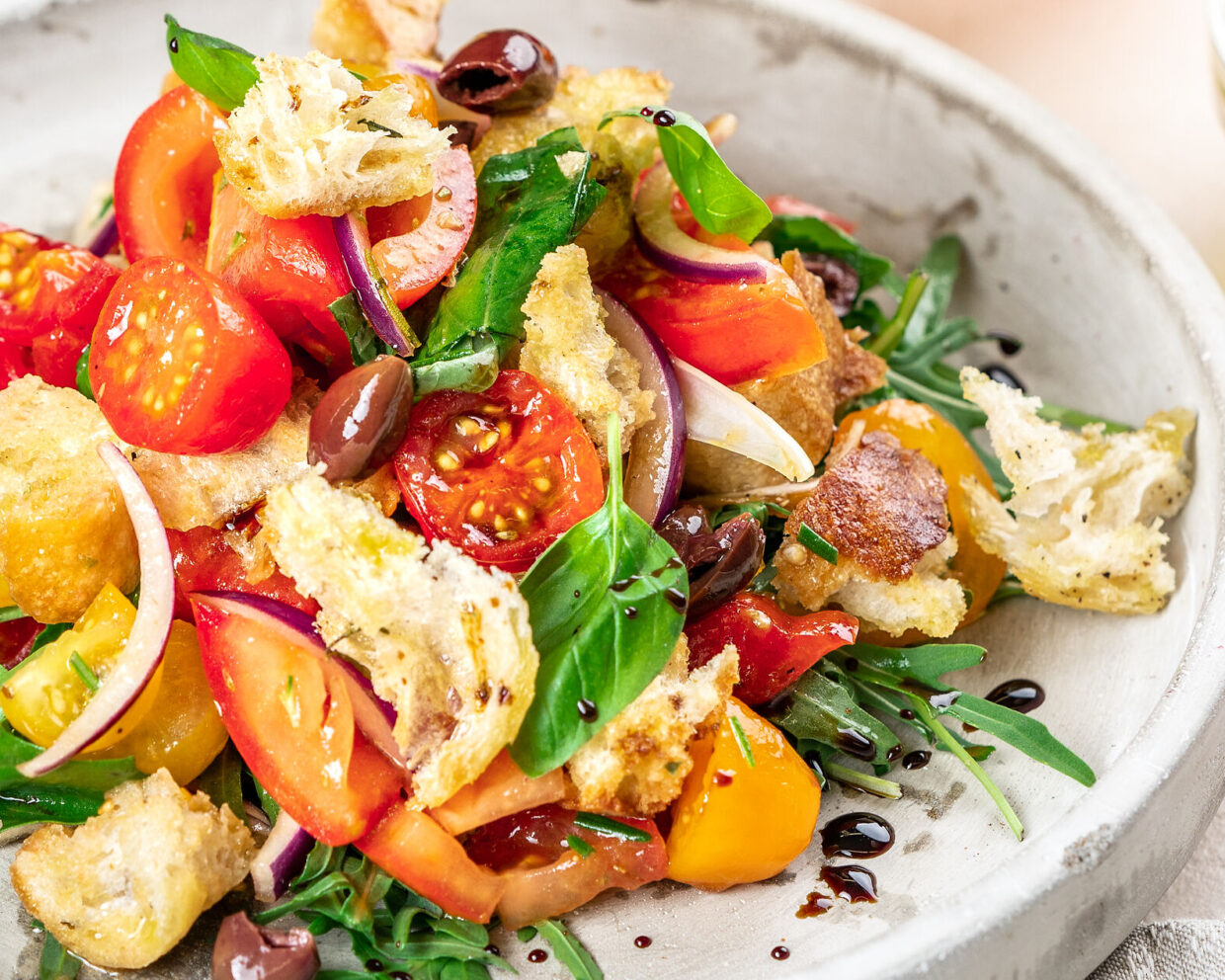
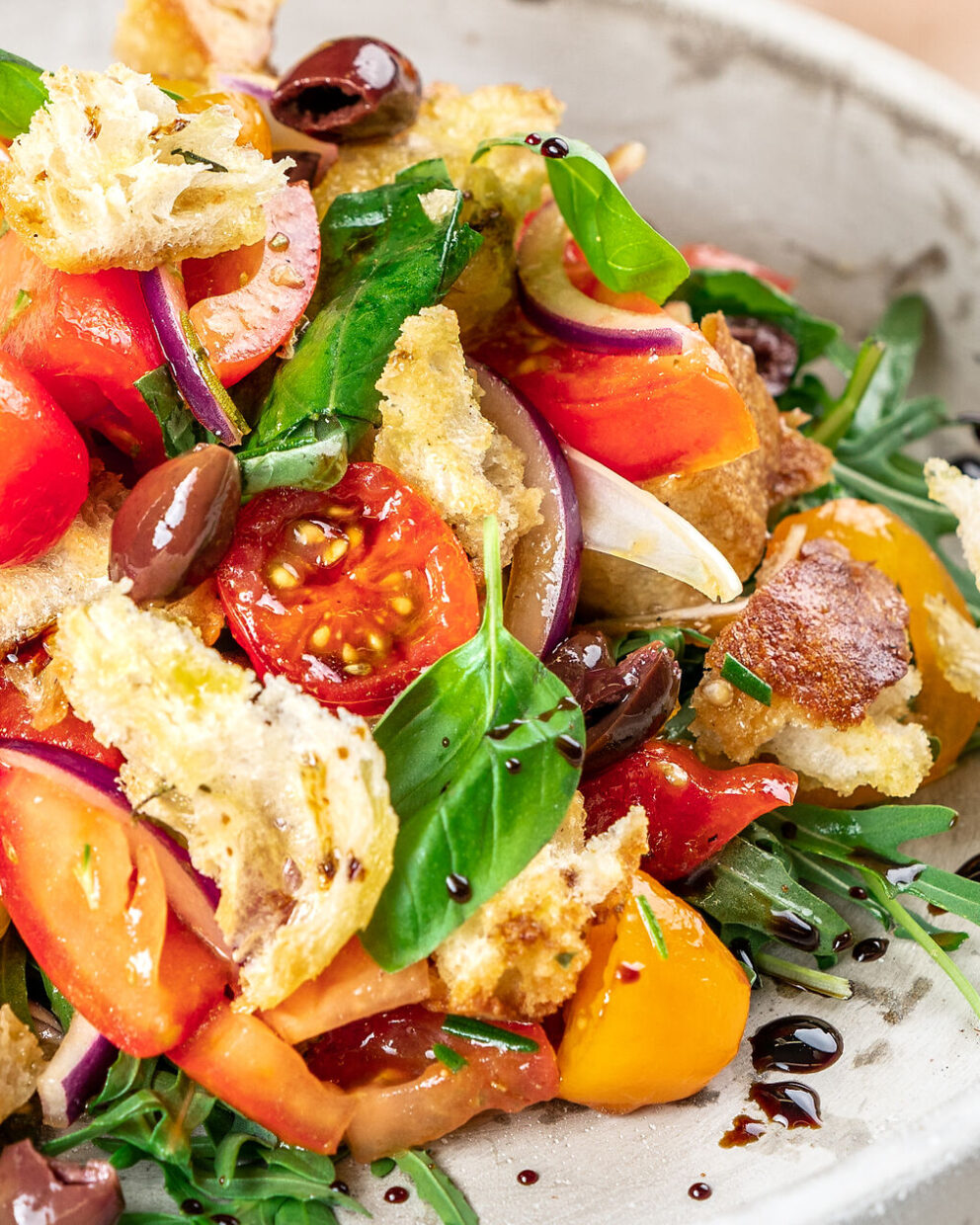
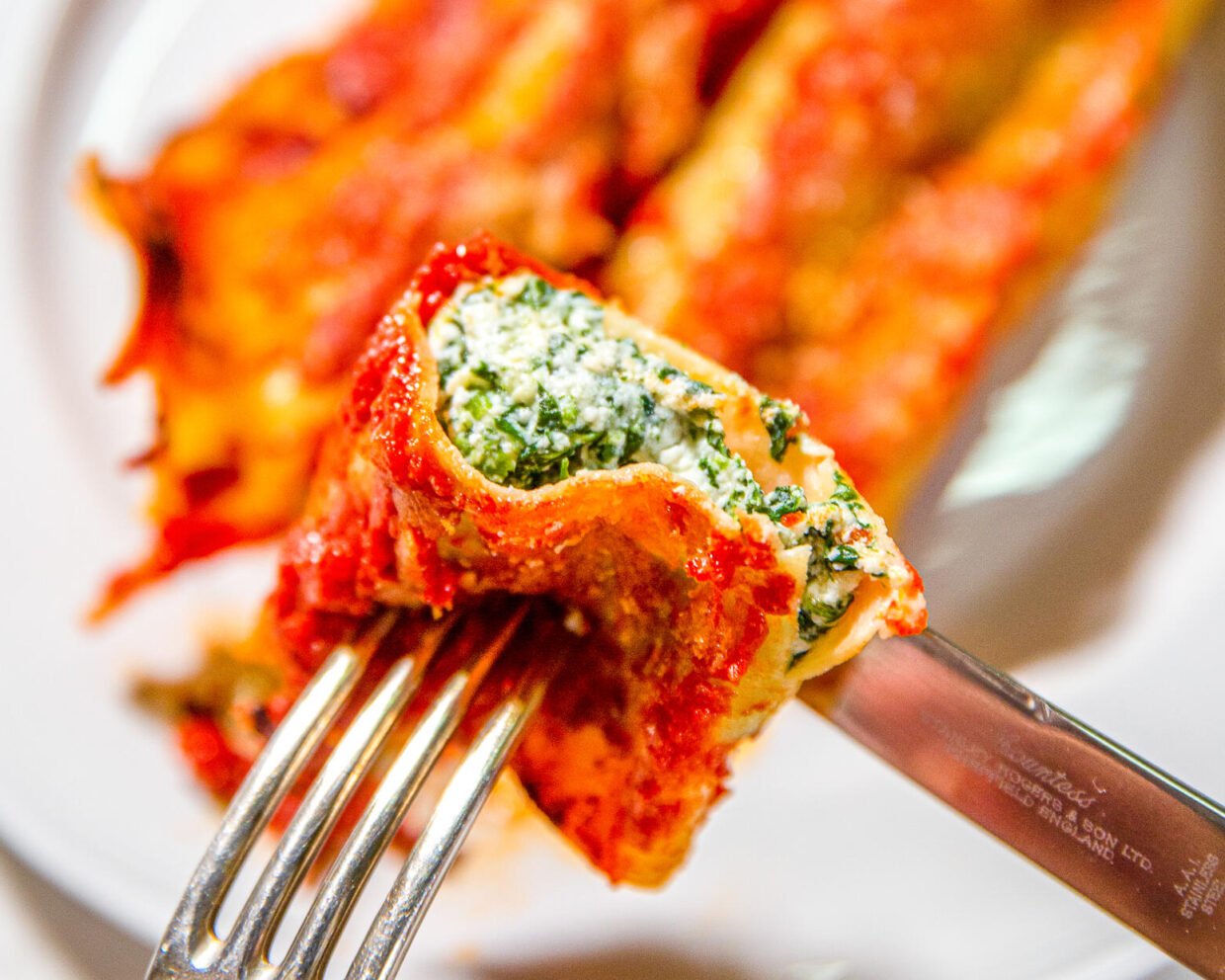
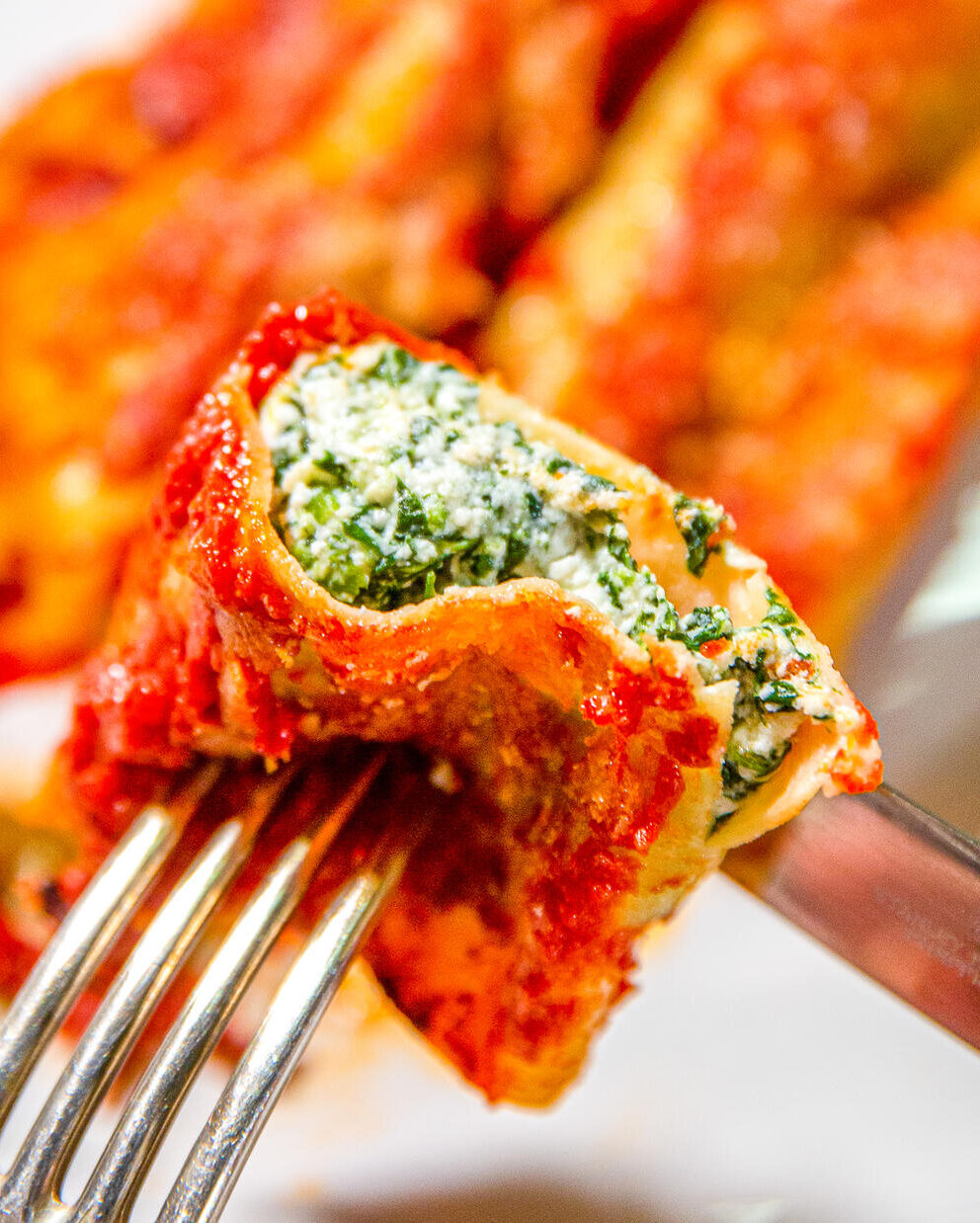
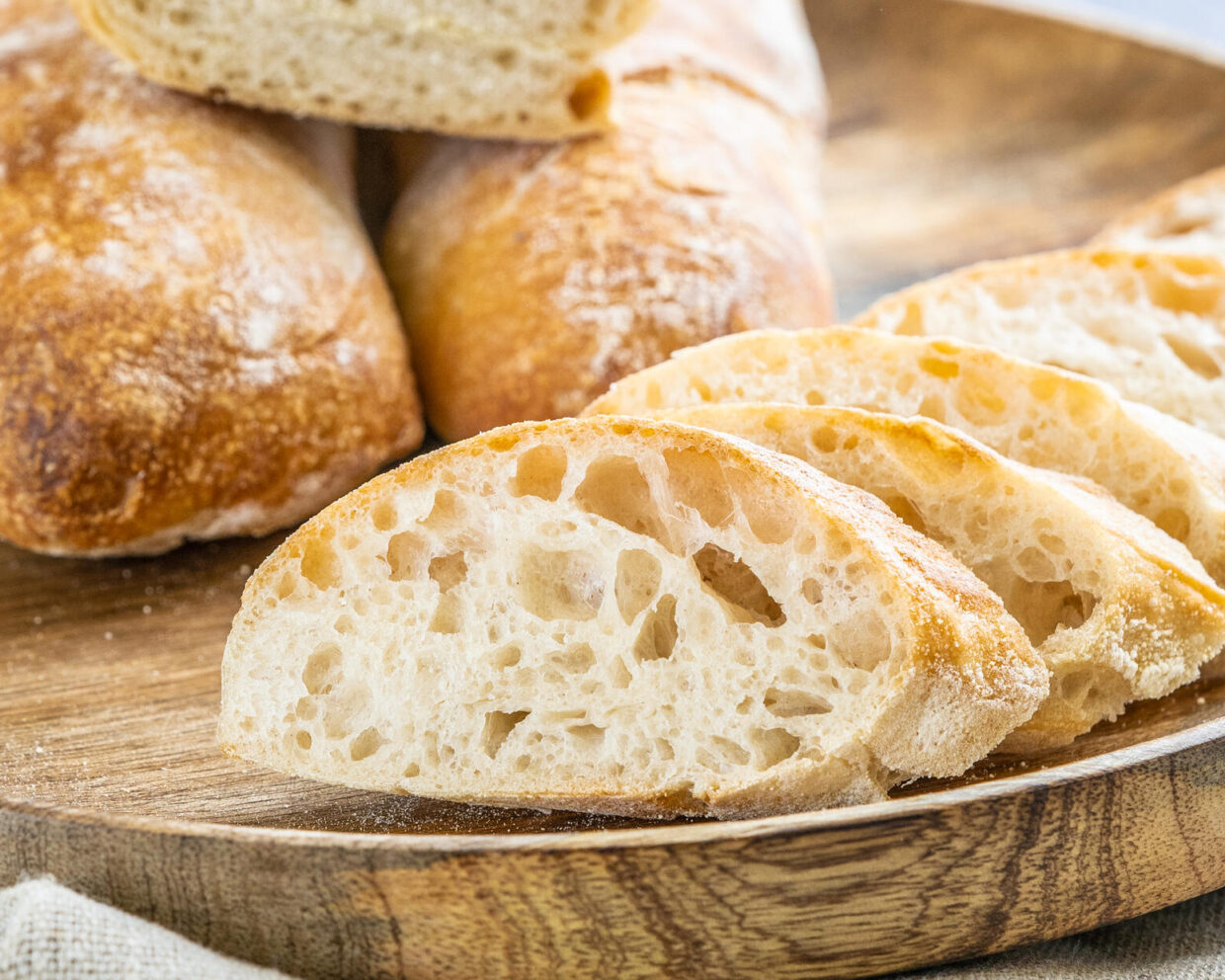
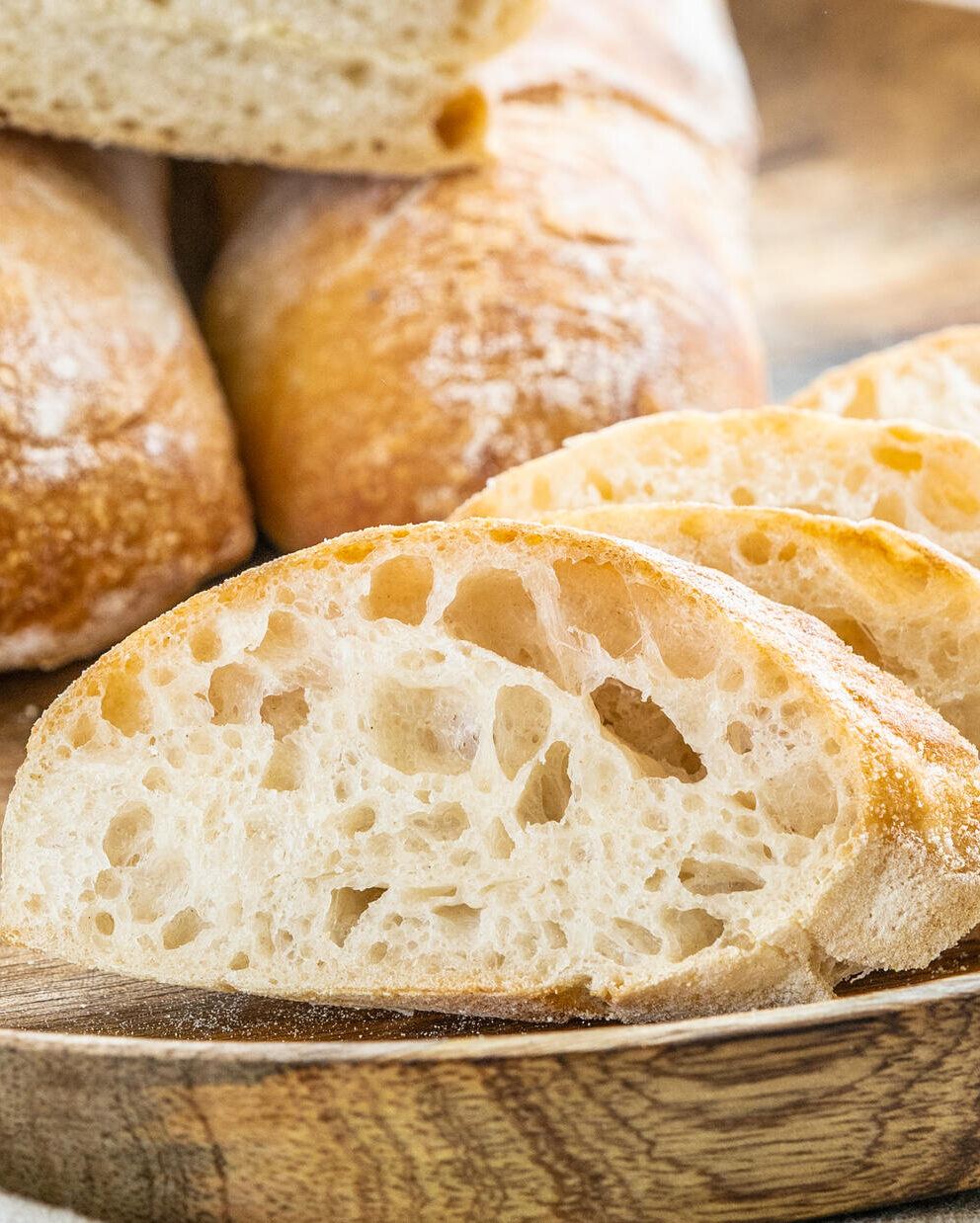
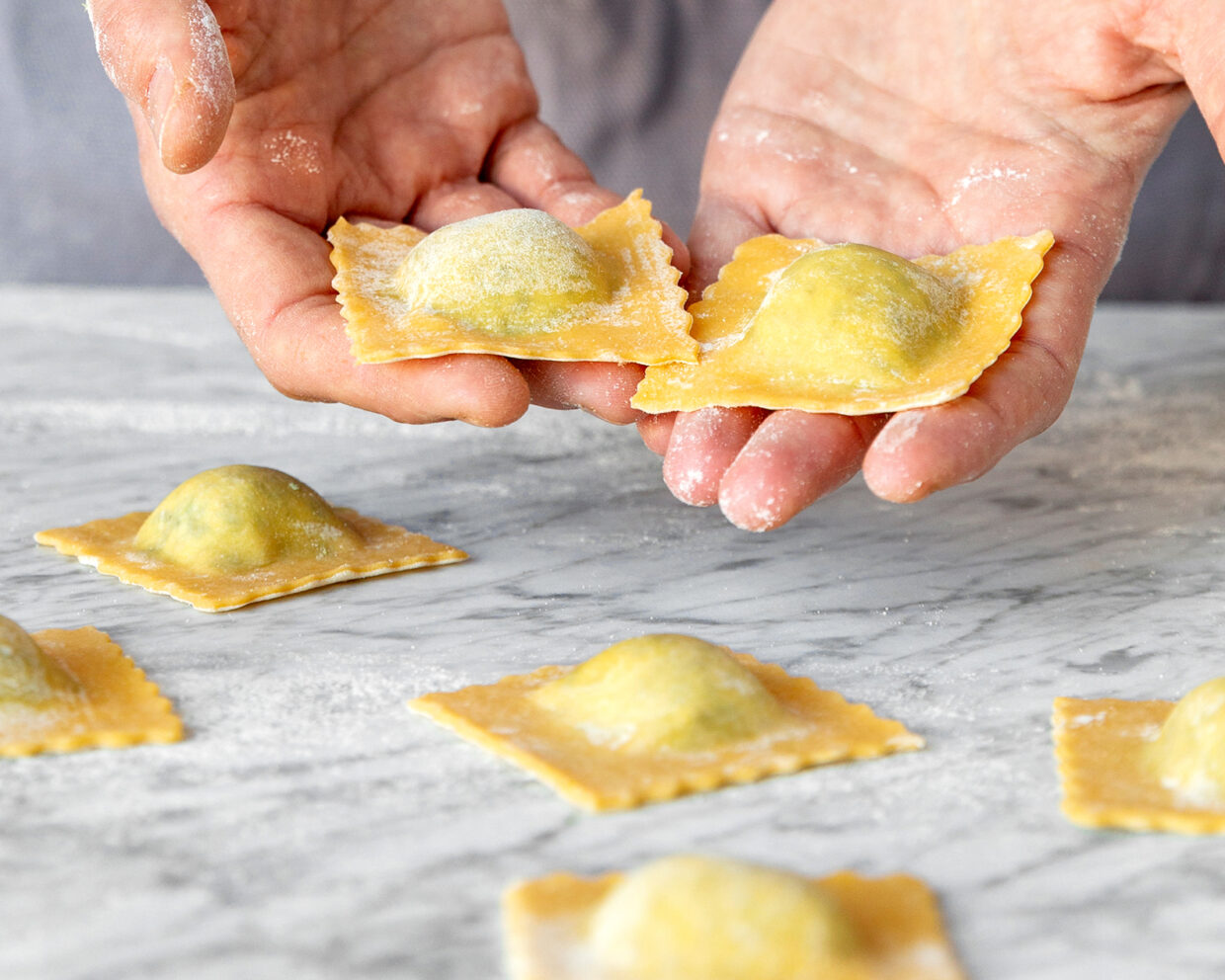
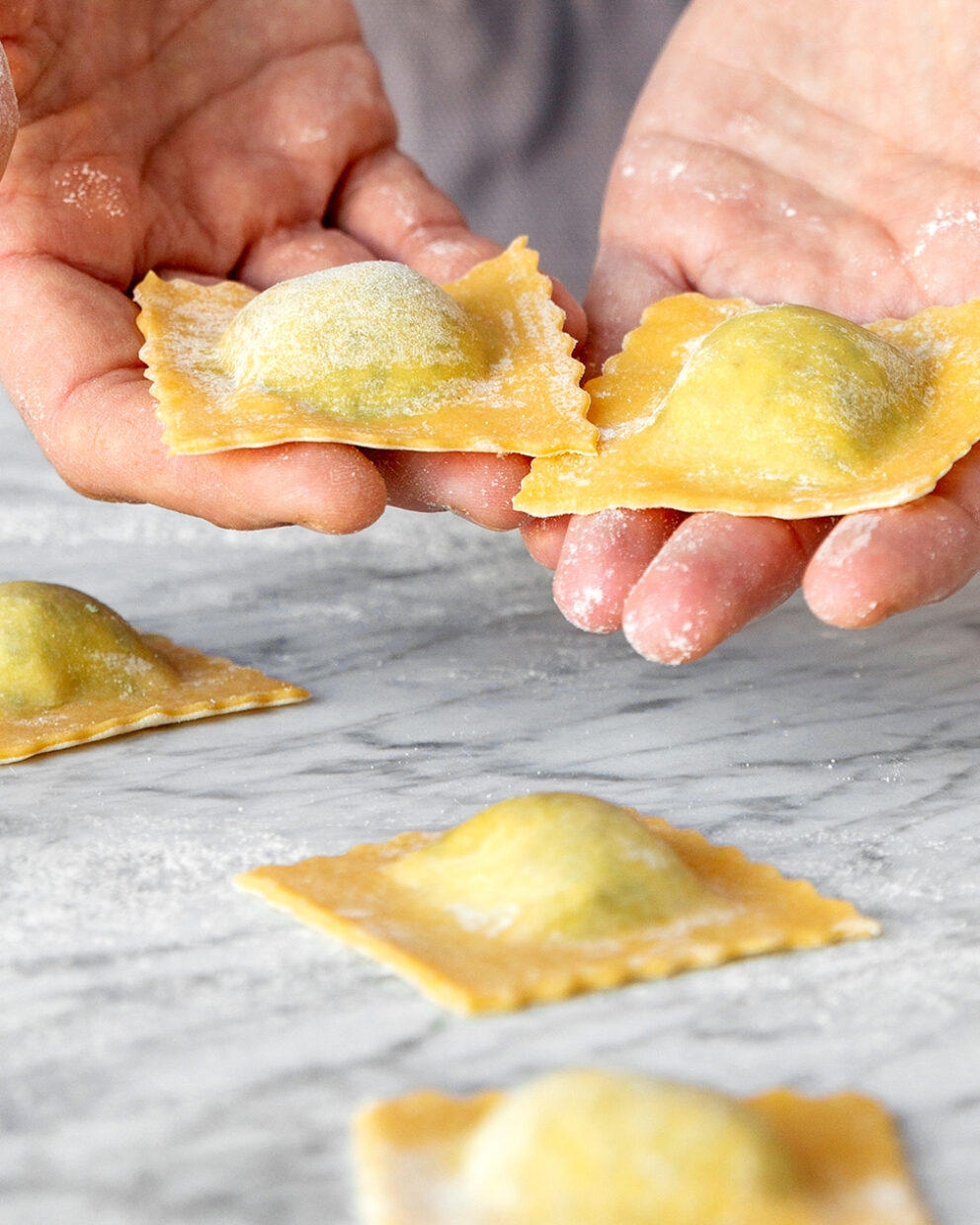
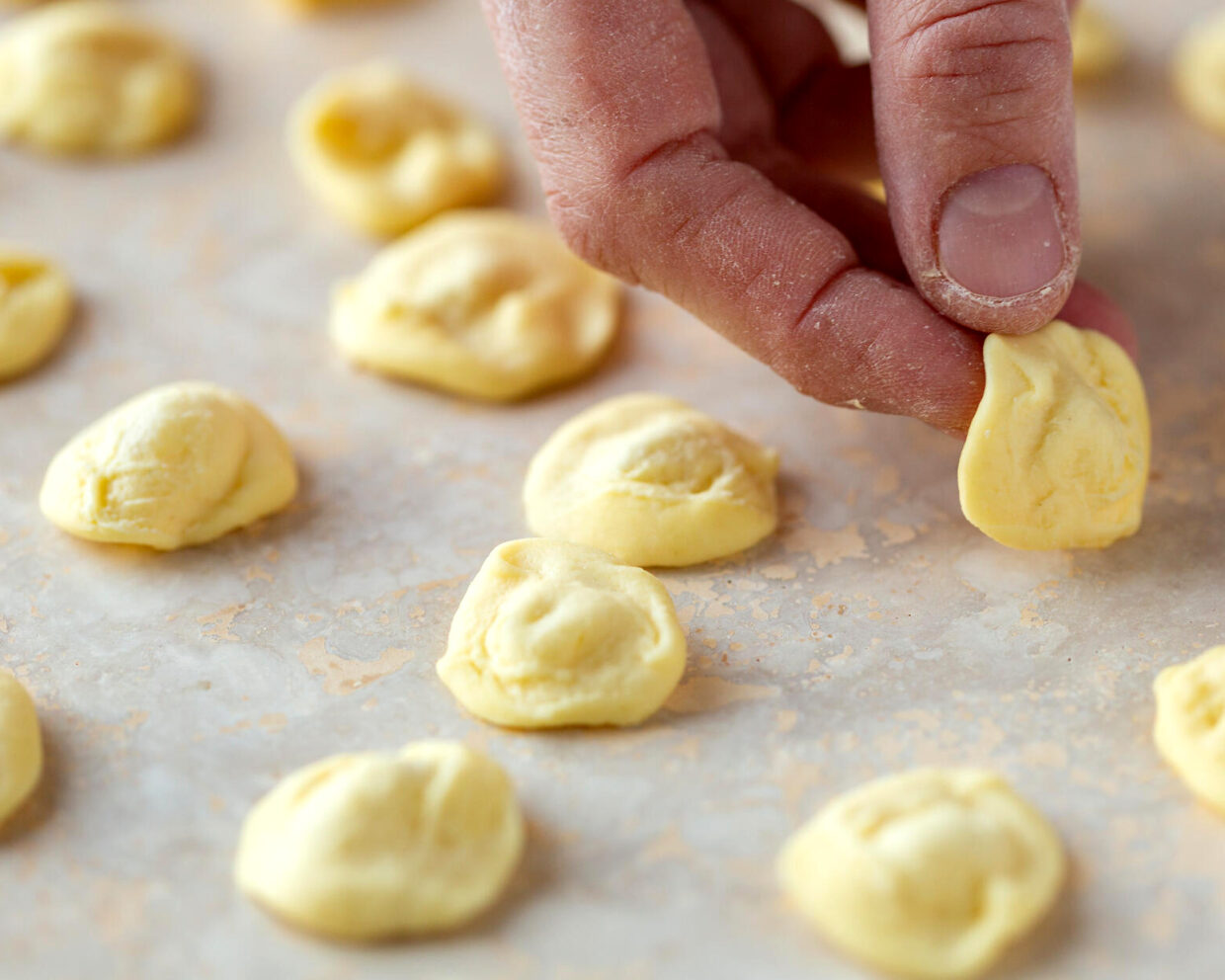
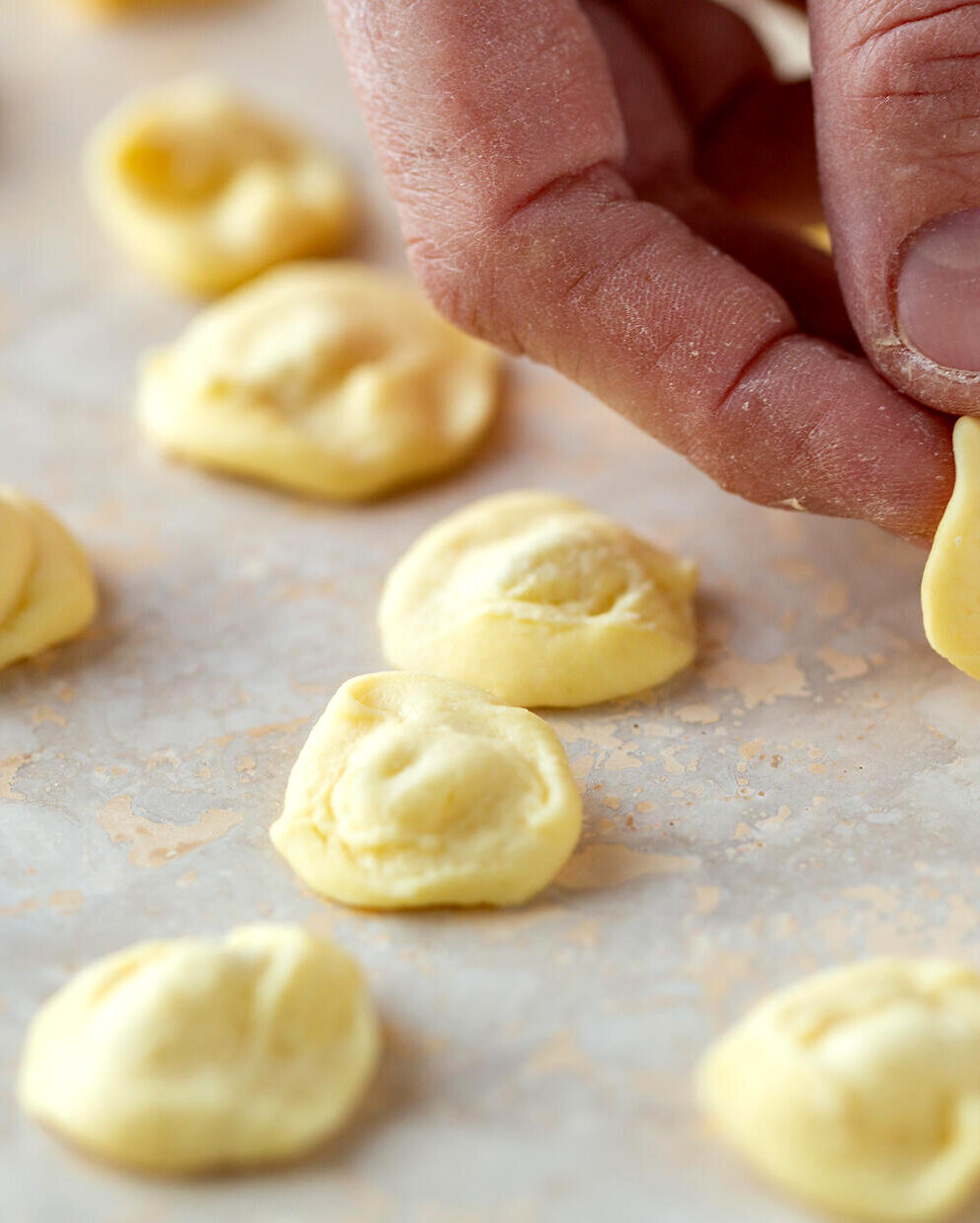
Want to share your thoughts? We're excited to hear what you think of the article. Tell us about your ideas, tips or questions! Leave a comment and share your knowledge with the community. Your opinion counts.
Write a comment